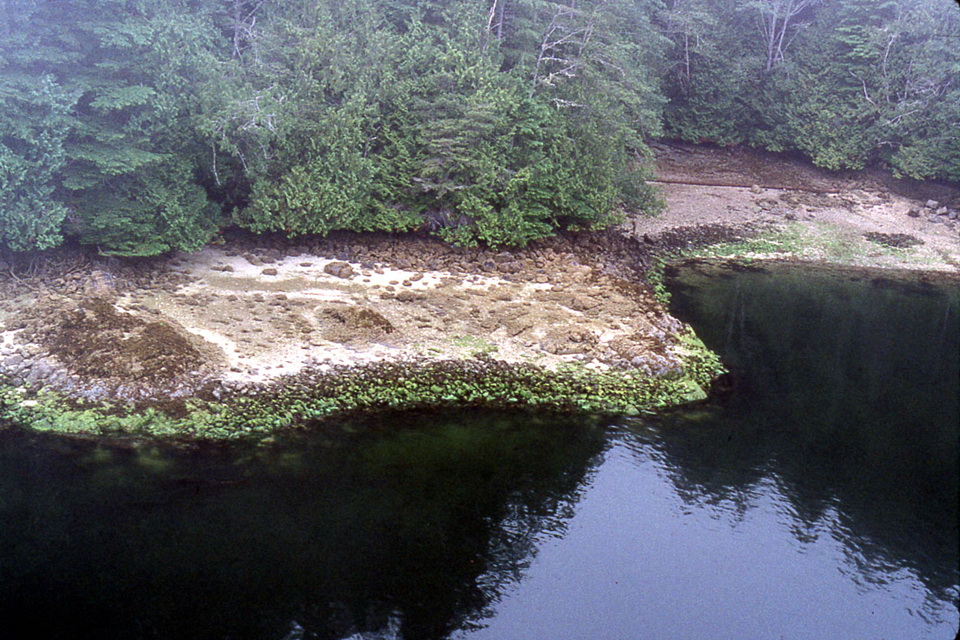CANCELED
Photo by John Harper
This talk was CANCELED.
Bringing Life Back to our Beaches: The Resurgence of Coast Salish Sea Garden Stewardship & Cultivation Practices
Coast Salish peoples have actively shaped the Salish Sea’s most characteristic landscapes and seascapes over millennia. Intertidal ecosystems are no exception to this stewardship, and clam gardens (known as ‘Sea Gardens’ in Coast Salish territory) provide prolific evidence of this. Clam gardens are rock-walled, intertidal terraces constructed by the coastal First Nations of British Columbia (Canada) and Native Americans of Washington State and Alaska (USA) to enhance the shellfish productivity of beaches and rocky shorelines by up to four times relative to unmodified beaches. Nations have built, maintained and harvested from clam gardens continuously for the last 3,500 years, even amidst changing sea levels. The pervasive impacts of settler colonization in the past 200 years, however, have impaired communities’ ability to care for these places to the extent they have in the past.
Auspiciously, and for the first time in centuries, clam gardens are bustling with life once again. Elders, youth, First Nations knowledge holders, and scientists are working together to restore clam gardens and simultaneously revive intergenerational connections, Indigenous languages, connections to place, and intertidal ecosystems. In the Southern Gulf Islands, a team is experimentally restoring two clam gardens – rebuilding rock walls and revitalizing traditional tending practices – all guided by community knowledge holders. Six-years in, this collaborative effort has seen unprecedented levels of engagement between First Nations communities, the Government of Canada, and external partners, and demonstrates the importance of relationships and a focus on shared goals for effective collaboration and learning. This project provides an example that can help explain the effects of a human management practice on coastal ecosystems and supports a growing understanding of how managing ecological and human communities as linked systems can support the long-term resilience of both.
For Winter Quarter 2020 Huxley College is collaborating with the Salish Sea Institute for the Huxley Speaker Series, with a focus on the Salish Sea.
This talk is co-sponsored by the WWU Center for Canadian-American Studies.

About the Speaker

Skye Augustine is a Hul’q’umi’num (Stz’uminus) scholar whose work lies at the intersection of Indigenous scholarship and marine science, and focuses on responsible action. She believes that to tackle the tremendous challenges facing our communities and ecosystems today we have important lessons to learn from Indigenous epistemologies as well as western scientific approaches. She holds a BSc & MSc in Geography from the University of Victoria where her work focused on social science within marine conservation and is now a doctoral candidate with the Coastal Marine Ecology & Conservation Lab at Simon Fraser University.
Professionally, Skye’s work has focused on community-led science, education, and policy. She has worked as the Associate Director of the Salish Sea Research Center at Northwest Indian College, as a collaborator on the Learning By The Sea program, and an advisor on Indigenous policy for regional and federal governments. For the past five years she has led a clam garden restoration project – a collaboration between Coast Salish Nations and Parks Canada. This landscape-scale restoration experiment examines the impacts of revitalized clam garden practices on intertidal ecosystems and linked human communities by drawing on Indigenous knowledge and marine ecology.
Environmental Speaker Series
The Environmental Speaker Series is hosted by the College of the Environment at Western Washington University.
The Series is free and open to the public. Talks are held each Thursday at 4:30 pm in Academic Instructional Center West room 204 - AW-204. Talks will also be streamed via zoom. Register with the Alumni Association for the zoom link. Paid parking is available in lot C.
Learn more about the Environmental Speaker Series
Subscribe to the Email List